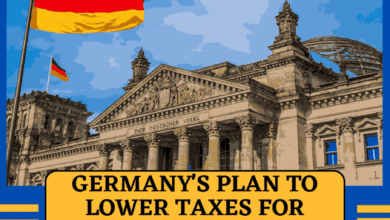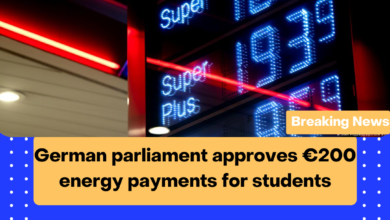Decrease in Energy Prices in Germany
Decrease in Energy Prices in Germany
Consumers in Germany are experiencing a decrease in energy prices, which may come as a surprise to those who are used to rising energy prices. The decrease in energy prices is due to a combination of factors, including the country’s increasing use of renewable energy sources and favorable weather conditions.
Germany’s Renewable Energy Revolution
Germany has made significant strides in the use of renewable energy sources over the years. According to the Federal Ministry for Economic Affairs and Climate Action [BMWK], renewable energy sources accounted for 40% of the country’s electricity production in 2019. This increase in renewable energy production has led to a decrease in the use of non-renewable energy sources, such as coal and gas, which tend to be more expensive.
One of the main reasons for Germany’s success in renewable energy is due to its feed-in tariff system, which provides incentives for households and businesses to install solar panels and other forms of renewable energy systems. This has helped to create a more decentralized energy system, with power generated from various renewable sources.
Furthermore, Germany is a leader in wind energy, with many wind farms located in the North Sea and the Baltic Sea. In 2020, Germany installed a record number of wind turbines, which generated around 25% of the country’s electricity.
Favorable Weather Conditions
In addition to the increase in renewable energy production, favorable weather conditions have also played a role in the decrease in energy costs. Germany experienced an unusually mild winter in 2022, which led to a decrease in energy demand for heating. This decrease in demand led to a decrease in energy prices, as energy providers did not need to produce as much energy.
Impact on Consumers
The decrease in energy prices has been welcomed by consumers in Germany, who have been dealing with rising energy costs with the recent inflation. This decrease in costs will enable them to save money on their energy bills and improve their quality of life. Lower energy costs may also enable households to spend more on other goods and services, thereby boosting the economy.
However, not all consumers have benefited equally from the decrease in energy costs. Low-income households and households with high energy consumption still face high energy costs, despite the decrease in prices. Therefore, it is important for policymakers to consider how to make energy costs more affordable for all households.
Future of Energy Prices
The decrease in energy costs may not last forever. Factors such as changes in weather patterns and energy demand can affect energy prices in the future. Additionally, there are ongoing debates regarding energy policy and the role of renewable energy sources in Germany’s energy mix, which could potentially impact energy prices in the long term.
For instance, the government has set a target of reducing greenhouse gas emissions by 55% by 2030, which will require significant changes to the country’s energy system. This could include phasing out the use of coal and increasing the use of other renewable energy sources, such as hydrogen.
The decrease in energy costs for consumers in Germany can be attributed to a combination of factors, including the country’s increasing use of renewable energy sources and favorable weather conditions. While the decrease in energy costs is welcome news for consumers, it is important to remain vigilant about future changes in energy prices and policy. As Germany transitions to a more sustainable energy system, policymakers will need to consider how to make energy costs more affordable for all households.
Read more at How To Abroad:
Germany: Inflation in March dipped to 7.4%
Germany’s Economic Recovery & The Challenge of Public Debt
Want to study in Germany? How To Abroad will help you achieve your academic goals.









